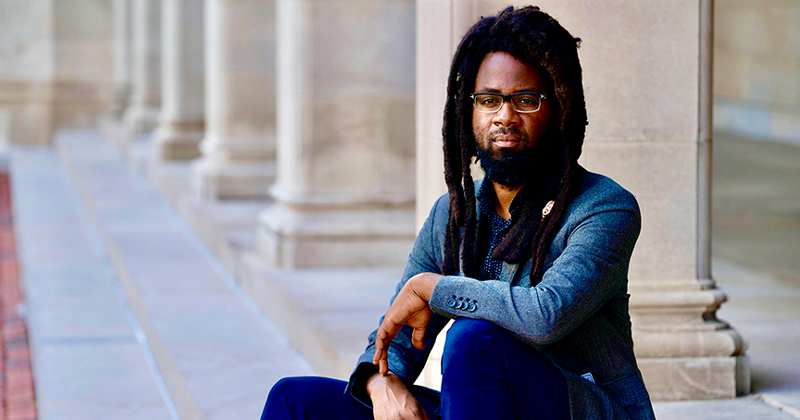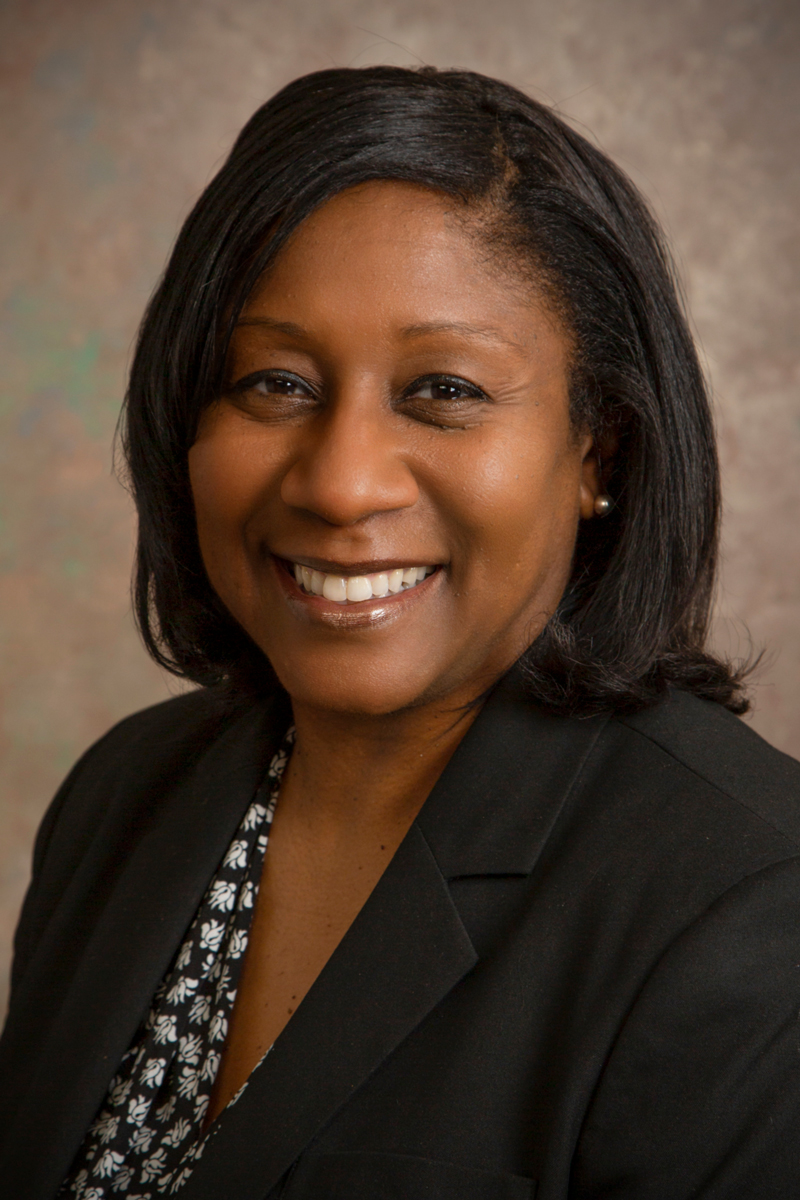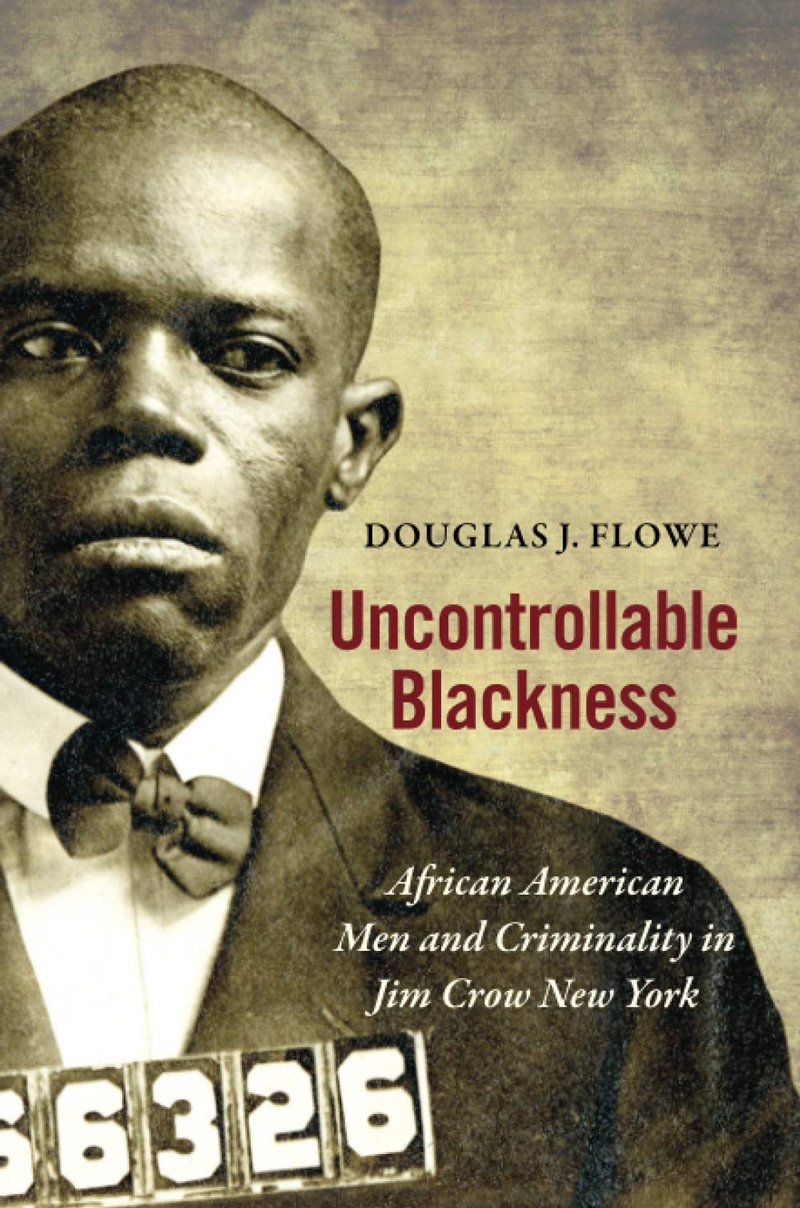


Speaks-Warnock Black History Month Lecture
Photo courtesy of Washington University February 26, 2021
Historians to discuss interactions of men, women with criminal justice system
Cheryl Hicks is looking forward to the conversation she will soon have with Douglas Flowe — an opportunity, she says, for the two scholars to talk about the historical issues they both explore in relation to African Americans and the criminal justice system and about the different perspectives they each bring to the subject.

“I think this will be a good way to talk about the research we’ve done and about his new book, his new scholarship,” said Hicks, associate professor of Africana studies and history at the University of Delaware. “I think we ask similar questions but in different contexts.”
Luckily for members of the UD and broader community, their conversation will be public, giving those interested in all aspects of the subject the chance to sit in online.
Flowe, an assistant professor of history at Washington University in St. Louis, will talk with Hicks from 4-5 p.m. Tuesday, March 2, in UD’s 2021 Speaks-Warnock Black History Month Lecture. The event is free and open to the public via Zoom, with registration required at this website.
Flowe’s talk, “The Construction of Black Men’s Criminality: A History of Jim Crow Era New York,” will focus on the research he conducted for his book Uncontrollable Blackness. For that book, published in June by the University of North Carolina Press, Flowe studied prison and arrest records, trial transcripts, personal papers and official documents.
He writes about the biased criminal justice system that African American men in New York City faced in the early years of the 20th century, a time when they also lived with racial segregation and economic isolation. Flowe explores how these injustices led working-class Black men to use extralegal means to survive and protect themselves, as illegality became a kind of resistance.

“This impressive, well-written book brings a fresh perspective to the history of working-class Black men, providing intriguing narratives of personal and collective projects of survival in the face of unemployment, racial violence, residential discrimination, and other challenges associated with urban migration,” historian LaShawn D. Harris wrote in a review.
Hicks said the discussion on March 2 is an opportunity to talk about the areas in which her and Flowe’s scholarship overlaps as well as the different perspective each brings to the subject.
“For both of us, our research focuses on New York City and the Black working class in this time period, the impact of discriminatory practices and how this can be viewed through the criminal justice system,” Hicks said. “As you explore the records from this time, you find more and more information about how Black people navigated the urban North.”
Hicks’ award-winning 2010 book, Talk With You Like a Woman: African American Women, Justice, and Reform in New York, 1890-1935, focuses on the experiences of Black women and girls. Society and the justice system, Hicks said, believed that these young women and girls needed to be controlled, criminalizing such behavior as truancy and disobedience to parents.
“In my book, I focused on the ways Black women and girls attempted to negotiate their own lives, including their interactions with police, social workers and the probation and parole system,” Hicks said. “Because we [Flowe and I] come to this subject from different gender perspectives, we find different ways of thinking about criminality.
“We studied the same time, same place, but there are different ways that men and women experienced this.”
Both she and Flowe contribute to the field known as carceral studies, exploring not just jails and prisons but the way the justice system can give historians a broader context for other issues, Hicks said. Their discussion, she said, will undoubtedly also include such contemporary topics as mass incarceration and police interactions with Black citizens.
Speaks-Warnock Black History Month Talk
The event is co-sponsored by the History Department’s Speaks-Warnock Lecture Fund, the Department of Africana Studies and the UD Antiracism Initiative.
The lecture fund was created by Baltimore philanthropists David Warnock, a UD alumnus with a degree in history, and Michele Speaks. It is providing more funds for talks, symposia and other History Department events while also increasing support for history graduate students.
Contact Us
Have a UDaily story idea?
Contact us at ocm@udel.edu
Members of the press
Contact us at 302-831-NEWS or visit the Media Relations website

